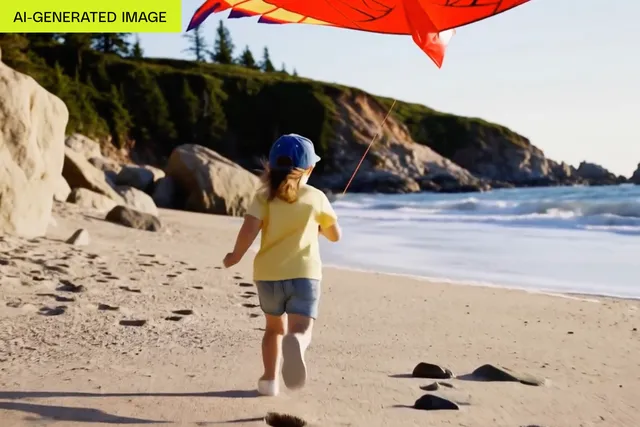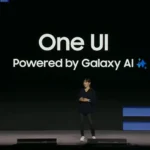Movie Gen can create new clips from text prompts or edit your face into existing footage — complete with sound.
Meta has announced a revolutionary new tool in the world of content creation: Movie Gen, an AI-powered video generator that can produce high-definition videos complete with sound. This marks a significant advancement in the field of AI-driven media, positioning Meta as a key player alongside competitors like OpenAI, who recently revealed their text-to-video model, Sora. However, while Sora remains out of public reach, Movie Gen’s official release date is also yet to be determined.
What Is Movie Gen?
Movie Gen takes the potential of artificial intelligence and elevates it to new heights, enabling users to generate high-quality videos simply by inputting text prompts. More than just a video generator, Movie Gen can also edit existing footage and transform still images into dynamic scenes. According to The New York Times, the AI doesn’t stop at visuals; it can also create audio to match the generated video, adding ambient noise, sound effects, and even background music that aligns with the action on screen.
Movie Gen’s flexibility is also a key feature, allowing users to produce content in various aspect ratios—ideal for creators catering to platforms with different format needs, such as social media and film.
Text-to-Video Magic
One of the most exciting aspects of Movie Gen is its ability to seamlessly transform text prompts into rich, cinematic videos. Meta has demonstrated its ability to animate still images, showcasing an example where a simple headshot of a woman is transformed into a vivid video scene of her relaxing in a pumpkin patch, sipping a drink. This ability to create custom videos from static images has huge implications for marketers, social media influencers, and content creators looking to bring photos to life with minimal effort.

In addition to creating new videos, Movie Gen can also take existing footage and modify it in a myriad of ways. For example, Meta shared a demonstration of a simple, animated runner. Using AI, the video was edited multiple times to show the runner in different scenarios: in one version, he’s holding pompoms, in another, he’s running through a desert landscape, and in a third, he’s dressed in a dinosaur costume. These changes were made entirely through text prompts, giving creators unprecedented control and flexibility to alter content on the fly.
AI-Powered Editing Like Never Before
Beyond video generation, Movie Gen also provides advanced editing tools powered by artificial intelligence. These tools can modify video styles, adjust transitions, and add new elements that weren’t present in the original footage. For filmmakers and content creators, this opens up endless possibilities for enhancing, remixing, or reinventing their media assets, all with minimal effort and maximum creative freedom.
With the ability to make on-the-go edits and changes based on simple text inputs, Movie Gen could become a game-changer for professionals looking to streamline their workflow or experiment with innovative new ways of storytelling.
The Competitive Landscape: Meta vs. OpenAI
The introduction of Movie Gen comes at a time of rapid progress in AI-driven creative tools. Over the past two years, AI image and video generators have hit the mainstream, leading to an arms race among major tech companies. OpenAI, Google, and several emerging startups are all working on similar innovations.
OpenAI’s Sora, which was first announced in early 2024, remains under wraps for public access, and just this week, one of the co-leads on the project left the company for Google, signaling shifts in leadership and competition in this space.
Despite the buzz surrounding these tools, Meta’s Chief Product Officer, Chris Cox, cautioned that Movie Gen is still in the development phase and won’t be widely available anytime soon. The reason? According to Cox, generating high-quality video remains expensive and time-consuming, meaning that Meta needs more time to optimize the process before rolling it out to the public.
Ethical Concerns: AI and Content Ownership
With AI video generators becoming increasingly powerful, ethical and legal challenges are growing in tandem. The issue of data ownership looms large over these innovations. Some startups have faced criticism for training their AI models on data scraped from platforms like YouTube without permission. One such company, Runaway, reportedly used YouTube videos in this way, which could violate the platform’s terms of service, as noted by YouTube CEO Neal Mohan.
Meta has taken steps to clarify its approach, stating that Movie Gen was trained on a combination of licensed and publicly available datasets. However, the company has not disclosed the specifics of which datasets were used, raising questions about transparency.
The Impact on Creatives: A Threat or an Opportunity?
As AI tools continue to develop, the creative community has expressed growing concerns about their impact on livelihoods. Movie Gen, with its advanced capabilities, has sparked debates about whether such tools will erode the demand for human filmmakers, photographers, and artists. AI’s influence in creative industries became a central issue during last year’s historic joint Hollywood strikes involving the Screen Actors Guild – American Federation of Television and Radio Artists (SAG-AFTRA) and the Writers Guild of America (WGA). Both unions cited the growing influence of AI in their fields as a significant point of contention.
While AI offers groundbreaking possibilities, many creatives worry that automated content generation will diminish the value of human expertise. The ability to generate entire video projects from text prompts, for example, could make it harder for up-and-coming filmmakers or editors to break into the industry. However, others view AI as a tool that can enhance creativity by automating mundane tasks, allowing professionals to focus on higher-level work.
What’s Next for Movie Gen?
While Movie Gen is not ready for public release, its potential is clear. As Meta continues to refine the tool, creators and consumers alike are watching closely to see how it will shape the future of video production and editing.
With AI-powered tools becoming more sophisticated by the day, it’s likely that Movie Gen will play a major role in shaping the media landscape of tomorrow—whether that will be to the benefit or detriment of traditional creators remains to be seen. What’s certain is that the intersection of AI and creativity is no longer a distant future, but an evolving present that holds both incredible promise and complex challenges.
For now, the world waits as Meta prepares to unveil the next chapter in AI-generated media.










